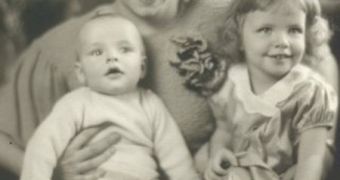Experts at the University of Cambridge have recently determined that experiencing mild sibling rivalry during childhood actually fosters kids' development, and makes them form stronger social relationships later on in life.
These are the results of a five-year project that was conducted by investigators at the university. Overall, it was found that nearly all forms of family interactions had these effects. Interestingly, mild sibling rivalry turned out to have some positive effects, which is something experts never thought of.
During the survey, the Cambridge team tracked kids aged 2 to 6, and followed their cognitive and social development, in the context of family interactions. The research project is called “Toddlers Up.”
One of the main objectives in the new work was to continue past researches, which demonstrated that children start displaying behavioral problems that hinder their school activity even before they turn 4.
At the beginning of the survey, the 140 test participants were 2 years old. Beforehand, experts carried out a study to identify families that had a high risk of raising children with behavioral issues. These included families with low levels of income, or in which one or both of the parents were teens.
About 43 percent of kids in the project had teen moms, and 25 percent of them were in families that had an income level below the poverty line, the Cambridge team says, quoted by PsychCentral.
“The traditional view is that having a brother or sister leads to a lot of competition for parents’ attention and love. In fact, the balance of our evidence suggests that children’s social understanding may be accelerated by their interaction with siblings in many cases,” says study author Claire Hughes, PhD.
“One of the key reasons for this seems to be that a sibling is a natural ally. They are often on the same wavelength, and they are likely to engage in the sort of pretend play that helps children to develop an awareness of mental states,” the investigator goes on to say.
Harsh sibling rivalry was not found to carry the same benefits, the team adds. There was no significant social development benefit for brother or sisters that actually fought hard and constant with each other.
“The children who performed best on tasks designed to test their social understanding at the age of six came from families where the mother carried out conversations in which they elaborated on ideas, highlighted differences in points of view, or tuned into children’s interests,” Hughes reveals.
“A lot of attention has been given to the beneficial impact of children being exposed to lots of family conversation. This shows we need to focus on the nature and quality of that conversation as well,” the expert concludes.

 14 DAY TRIAL //
14 DAY TRIAL //